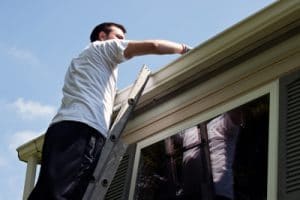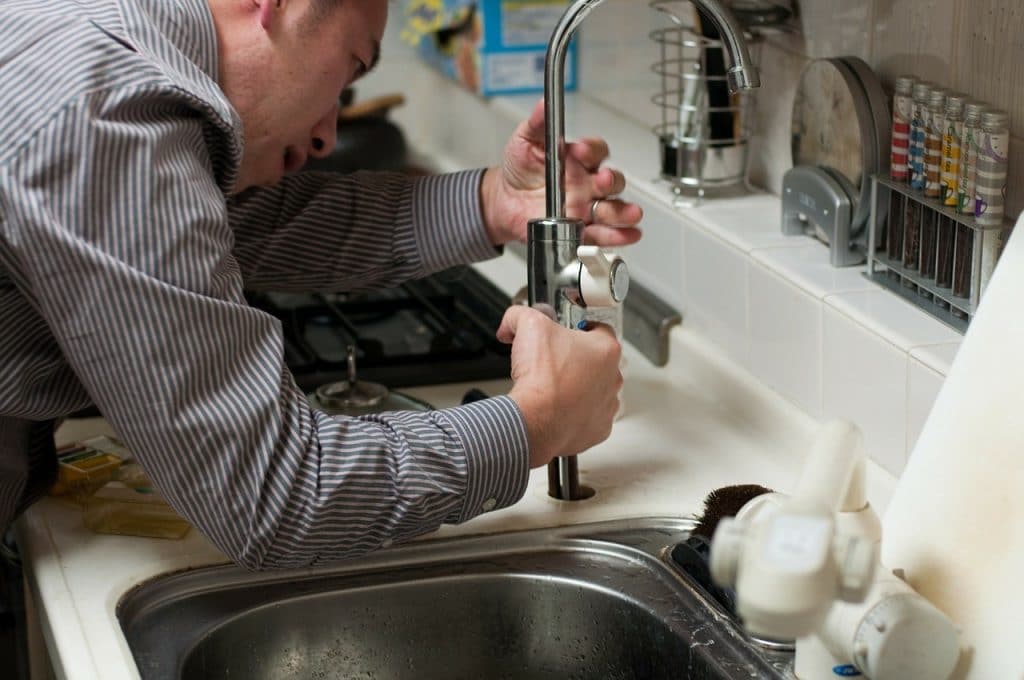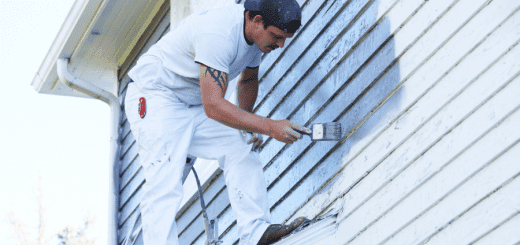DIY Projects vs Hiring a Professional
Renovating or performing repairs? If so, the costs to accomplish either feat can significantly empty a homeowner’s financial reserves. Due to the high expense of reconstruction work, many homeowners decide to roll up their sleeves and tackle the project themselves.
Independently performing reconstruction services has its advantages, namely cost. However, there are certain instances when consulting a professional is the most optimal choice. While labor is the most expensive part of hiring an expert, some tasks are still best left to the pros.
Expected Costs for Home Remodeling
Routine maintenanceMaintenance is the routine care, inspection, and repair of a... More annually costs homeowners on average one to two percent of the total price of their home. When homeowners plan a big budget reconstruction, expenses soar. Bathroom remodeling averages $9000; basement remodeling averages $15,000; and $20,000 covers kitchen remodeling.
Cost differences between DIY projects and hiring a professional are evident when considering the price of materials. A bedroom door that requires fixing has a $5 hardware cost. The handyman, however, will charge $30 to $125 plus a minimum fee reaching into the hundreds to re-align the broken door.
Price aside, there are practical reasons to hire a reconstruction service. Safety, for instance, plays a major role in deciding whether or not to hire experienced professionals. Electrical work is dangerous, even for trained technicians. A homeowner could be fatally injured if the project goes haywire.
Protecting Property from Damage
Homeowners should also be vested in protecting their property. Handling a plumbing task may be seemingly simple to a homeowner. Without expert installation, however, the small plumbing job could leadLead is a heavy metal that can be toxic to humans, especiall... More to an unnoticeable yet significant water leak—one that is responsible for major water damage.
Some cities require a permit to perform DIY construction services. Obtaining a permit for complex projects may require that the homeowner work in conjunction with a licensed contractor. When a permit is easy to obtain, the fact that one is necessary should prompt a homeowner to rethink a DIY project.
Price, property protection and permits are three solid reasons to consult an experienced reconstruction service. Some DIY tasks, though, can be accomplished with ease. Homeowners are advised to weigh the pros and cons of performing DIY work on certain projects, like the ones that follow.
1. Cosmetic Enhancements
Painting the walls or installing tiles can be handled by anyone with zero experience. Cosmetic changes to the home may be easily performed by a homeowner without costly consequences. Permits are not required, and innumerable online resourcesResources include tools, personnel, equipment, and materials... More are available to guide an inexperienced homeowner.
2. Water Heater Replacement
Replacing a gas water heater as a DIY project is setting foot in dangerous territory. Any job that involves working with gas lines is complicated and hazardous. Tampering with gas can leadLead is a heavy metal that can be toxic to humans, especiall... More to sudden explosions, poisoning or an uncontrollable outbreak of fire. To stay safe, consult a professional.
Replacing an electrical water heater may be safely done as a DIY project. Risk of danger is low, if any. While the job may be a challenge, replacing an electrical water heater is as demanding as managing a garden bed. Numerous online resourcesResources include tools, personnel, equipment, and materials... More are also available to help.
3. Plumbing Tasks
Depending on the extent of the plumbing problem and especially if it is a major repairRepair is the act of fixing or restoring damaged property, m... More, a permit may be required to perform work. A bathroom renovation or relocating plumbing fixtures clearly calls for the services of a reconstruction company or licensed plumbers.
On the other hand, fixing a leaky toilet is a plumbing issue that can be resolved by a handy homeowner. A minor repairRepair is the act of fixing or restoring damaged property, m... More like this one does not need a permit. Local hardware stores carry the equipment necessary for the fix, and online how-to videos are plentiful.
4. Exterior Projects
When the bricks on the porch come loose, homeowners may immediately decide to relay the bricks themselves. Repairs like these may be better handled by a knowledgeable contractor. A professional will identify the underlying cause of the loose bricks, which may be as serious as a weakened foundation.
5. Lighting Installation
Installing new lighting can be an easy DIY project for homeowners. Depending on how extensive the lighting installation happens to be, the entire project can take weeks or even months. Homeowners busy with a full-time job are likely to stretch the installation process far longer than it needs to.
Unless the homeowner enjoys the process and is willing to accept the length of time necessary to accomplish the job, hiring an electrician might be preferable. An electrician can complete the work within a day or two and obtain the permits required to perform electrical work.
6. Minor Demolition
Replacing the kitchen cabinetry can be an undertaking that combines the efforts of both the homeowner and a contractor. The light demolition of the old cabinetry requires minimal skill but plenty of effort on the part of the homeowner. The demolition involves more time from homeowners than from well-equipped pros.
Once the light demolition is done, a contractor can begin the structural work. Experts are available to not only install new cabinetry, but carpeting, molding, appliances and fixtures. Performing half the work reduces the overall costs than having the contractor perform the entire job.
Working with a Reconstruction Contractor
When time and skill are valuable to a homeowner, calling in a reconstruction service is practical. A trusted construction contractor can provide full-scale reconstruction services with quality workmanship, speed and professionalism.
These professionals are experienced in tackling a wide range of reconstruction projects, from simple ones, like replacing carpeting, to complex ones, like roof replacement and electrical work. They obtain the necessary permits and perform work that follows all building codes.
In the wake of a natural disaster, homes and commercial properties are likely to take a hit. Professional restoration companies perform speedy reconstruction services on damaged structures and many provide emergency services 24 hours a day, 7 days a week.












